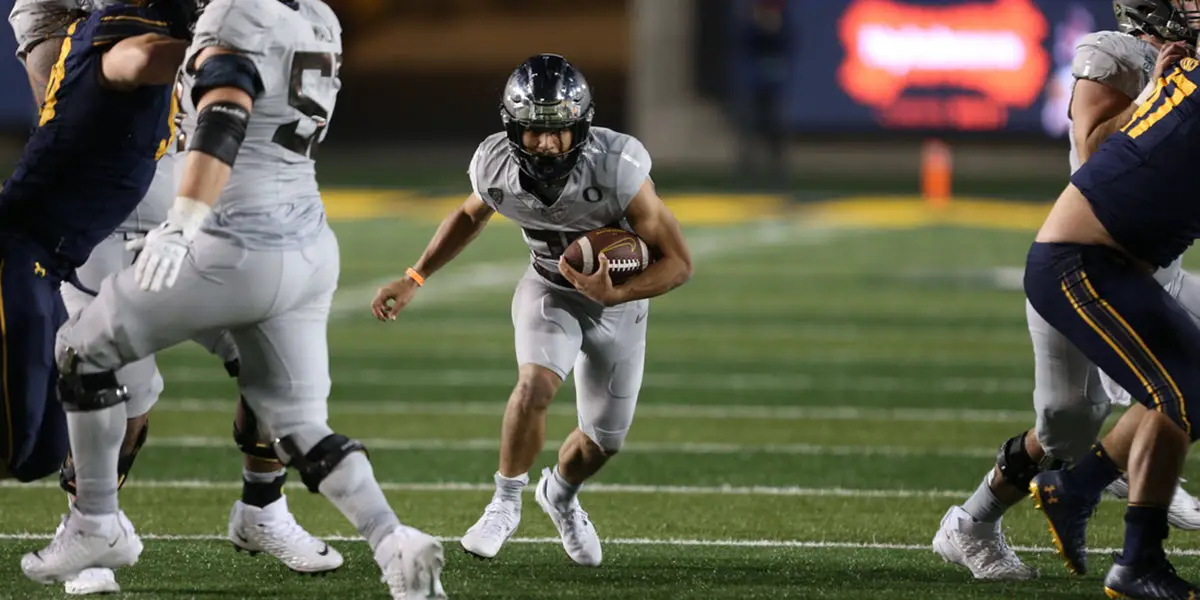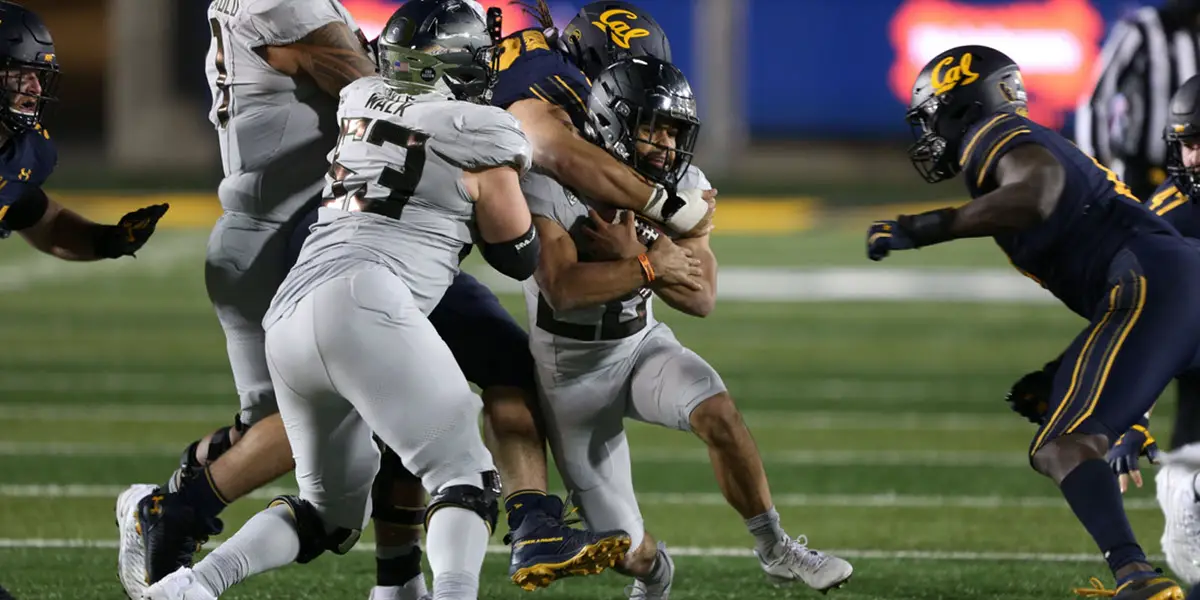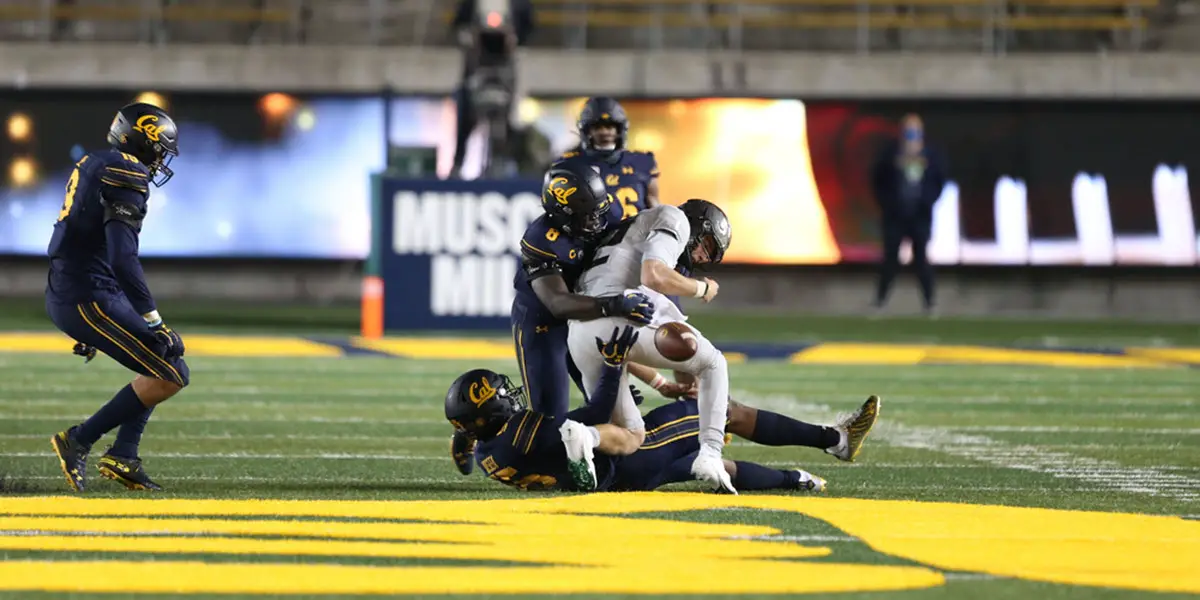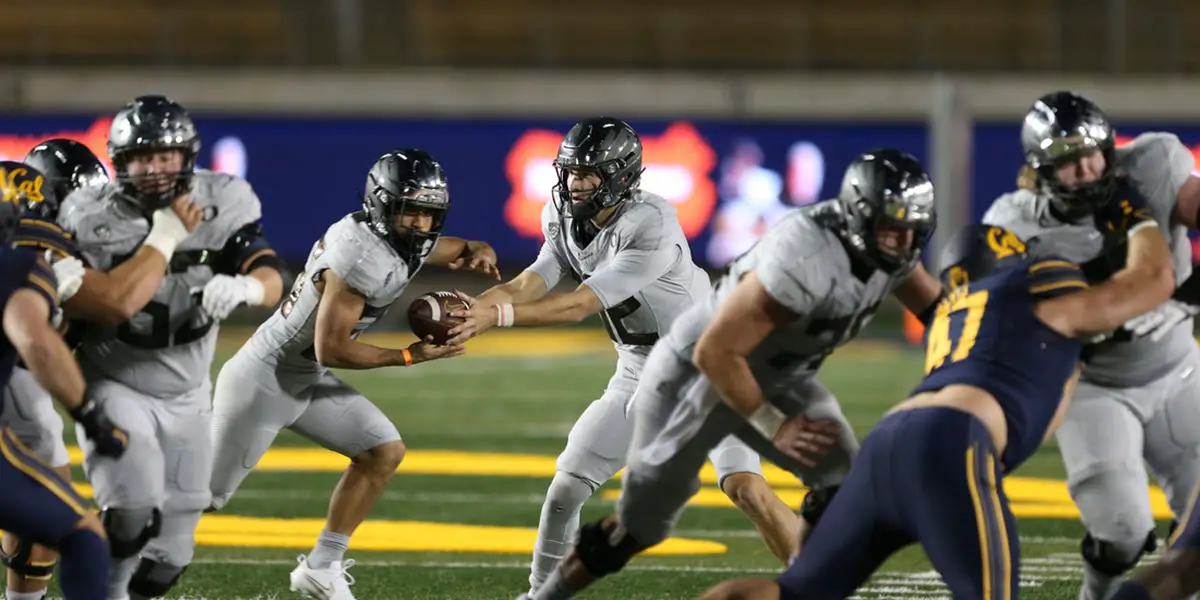Oregon has yet to put a solid four quarters of play together this season. Against Cal, it was Oregon’s offense that lost the game, where in the previous week against Oregon State it was Oregon’s defense. The defense this past weekend, despite a terrible first half, put together its best performance of the season.
The defense obviously needs to continue to improve, but the offense needs to prove it can score points and protect the football.
Ditch the Pistol
This one isn’t new to Oregon fans. As a collective, we have been screaming for over a year now that the pistol simply doesn’t work — at least as an every-down formation. The pistol can work as a change-up to take the defense off-guard. Many teams find success when they only occasionally use the pistol.
At the end of the third quarter and into the beginning of the fourth quarter against Cal, the Ducks displayed exactly how the pistol does not work. The success of this drive was largely dependent on the use of the shotgun, where Travis Dye had runs for chunk-yards and Oregon ramped up the tempo. It left the Cal defense stumbling backward as Oregon was on the march. It was a successful drive until the offense switched to the pistol formation. Three downs later, Oregon was faced with a fourth-and-one scenario. CJ Verdell subbed into the game and lined up in the pistol and, unsurprisingly, failed to make the line to gain.

Travis Dye runs through a large hole created by the offensive line.
As Oregon fans, we have seen the pistol kill offensive drives too often, and the fourth-down scenario is nothing new. What was different, though, was the success of the offense was out of the shotgun — only to change to the pistol and four downs later to be completely stopped. The offensive coaching staff was given the starkest examples of what works and what does not work in the same drive.
This needs to change.
The pistol is also hurting offensive line play because it requires the offensive line to make bigger gaps and hold them open for longer periods of time against a defense that knows exactly what is happening and how to stop it. Mario Cristobal preaches physicality, but what he is asking from his linemen is unreasonable, and therefore he is setting them up for failure.
In contrast, this offensive line created enormous gaps for Dye to run through when they ran out of the shotgun, and did so effortlessly. This offensive line has the potential to be great, and these running backs could be great, but the rushing scheme is handicapping them.
It is time to end the failed pistol offense and set Joe Moorhead free.

Travis Dye is stopped at the line of scrimmage after running out of the pistol.
Protect the Ball
Ball security is the simplest lesson in all of football. This year that lesson seems to be lost on the Ducks, as every game so far has come with multiple turnovers, save only the UCLA game where Oregon only had one turnover that was returned for a touchdown.
A new quarterback will make mistakes and Tyler Shough has made his fair share. He has four interceptions to date, though that number could certainly be higher as he has made some bad throws that bounced off defenders’ hands. He is young and still learning, and if interceptions were the sole issue facing Oregon’s ball security problem, that would be one thing.
Far more concerning are the fumbles. Shough lost the ball at the end of a run against Cal and hopefully he learned another lesson: to go down instead of struggling for more yardage while the ball is vulnerable. The fumble that sealed the loss against Cal came on Oregon’s final frantic series where Johnny Johnson caught the ball and was hit, sending the ball flying from his grip, only to be recovered by Cal.

Tyler Shough fumbles on a quarterback run against Cal.
In the first three games, the three primary running backs have coughed the ball up in troubling ways, though in the past two games the running backs have seemed to re-learn the ball security lesson, as they haven’t been responsible for giving up the ball against OSU or Cal.
These turnover issues need to be fixed quickly. The defense is making progress, though it is not capable of carrying Oregon to victory at this point. In addition, the Oregon offense must stop the self-inflicted wounds of the pistol and turnovers.
Oregon can still reach the Pac-12 Championship Game with a win over Washington this weekend, but the coaches and players need to make some adjustments to have even a chance at winning the Pac-12 North, let alone a second consecutive conference championship. Will change come fast enough to salvage the 2020 season for the Ducks?
David Marsh
Portland, Oregon
Top Photo By: Tod Fierner

Natalie Liebhaber, the FishDuck.com Volunteer Editor for this article, works in the financial technology industry in Bozeman, Montana.
Related Articles:
Ducks Football 2026: Breaking Down Strengths And Weaknesses
These Ducks Will Have Monster Second Seasons as Starters
Oregon Football: Early 2026 Ranking Projections
FishDuck Foaming Over Upside of 2026 Diamond Ducks
Unbelievable...Same SEC Stuff, Different Day
Why Oregon Football Always Belongs in the National Conversation

David Marsh is a high school social studies teacher in Portland, Oregon. As a teacher he is known for telling puns to his students who sometimes laugh out of sympathy, and being both eccentric about history and the Ducks.
David graduated from the University of Oregon in 2012 with Majors in: Medieval Studies, Religious Studies, and Geography. David began following Ducks Football after being in a car accident in 2012; finding football something new and exciting to learn about during this difficult time in his life. Now, he cannot see life without Oregon football.

